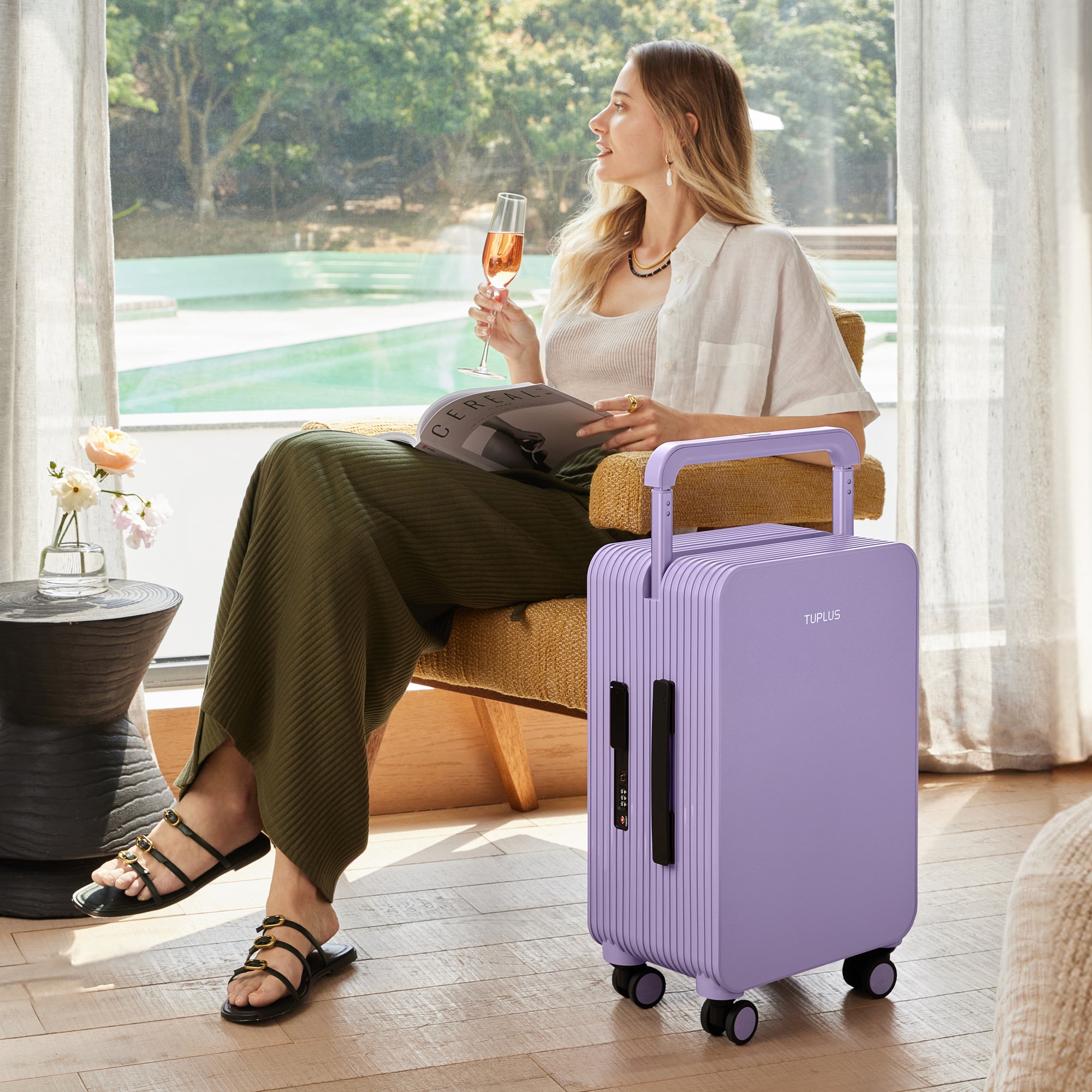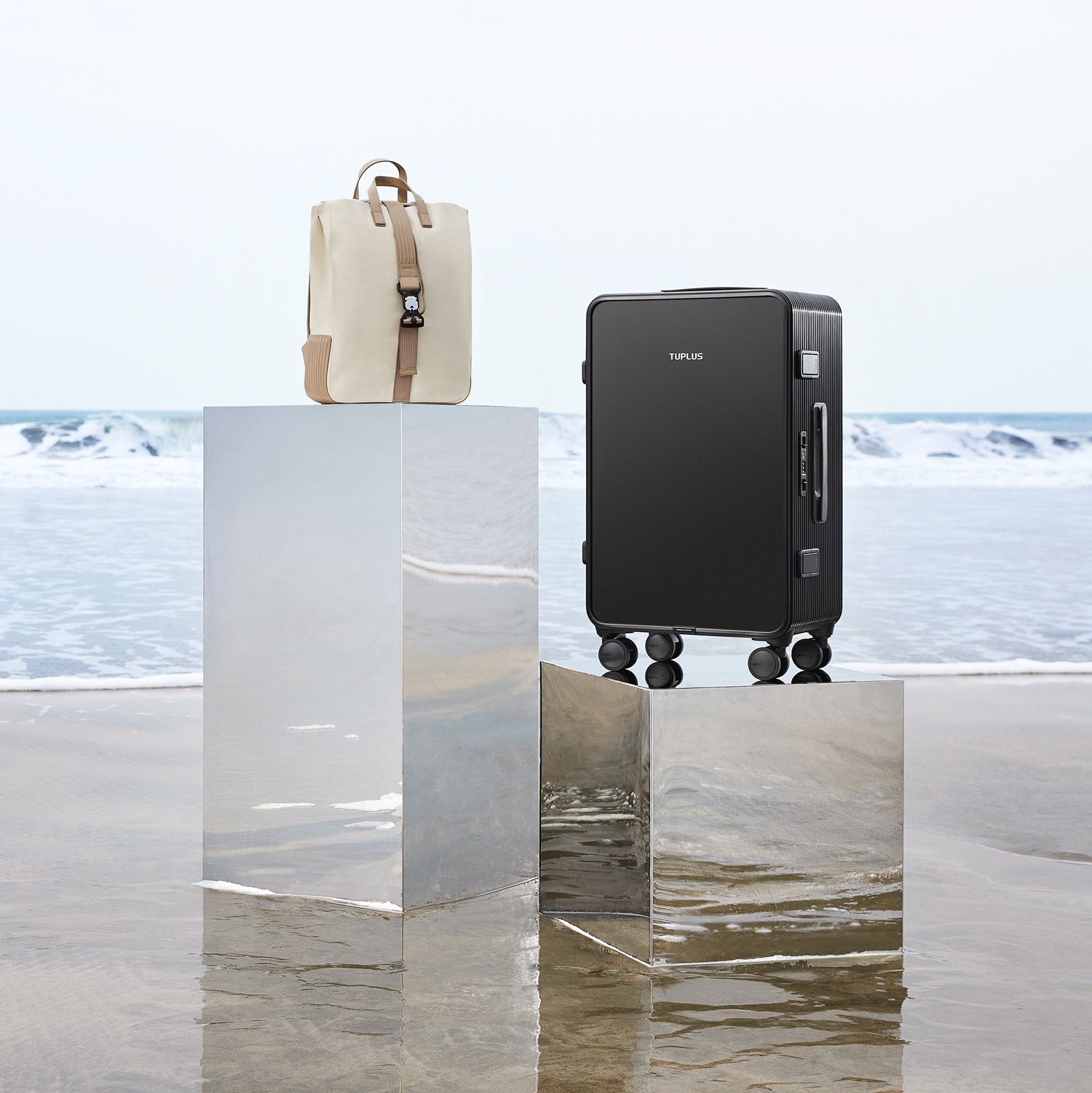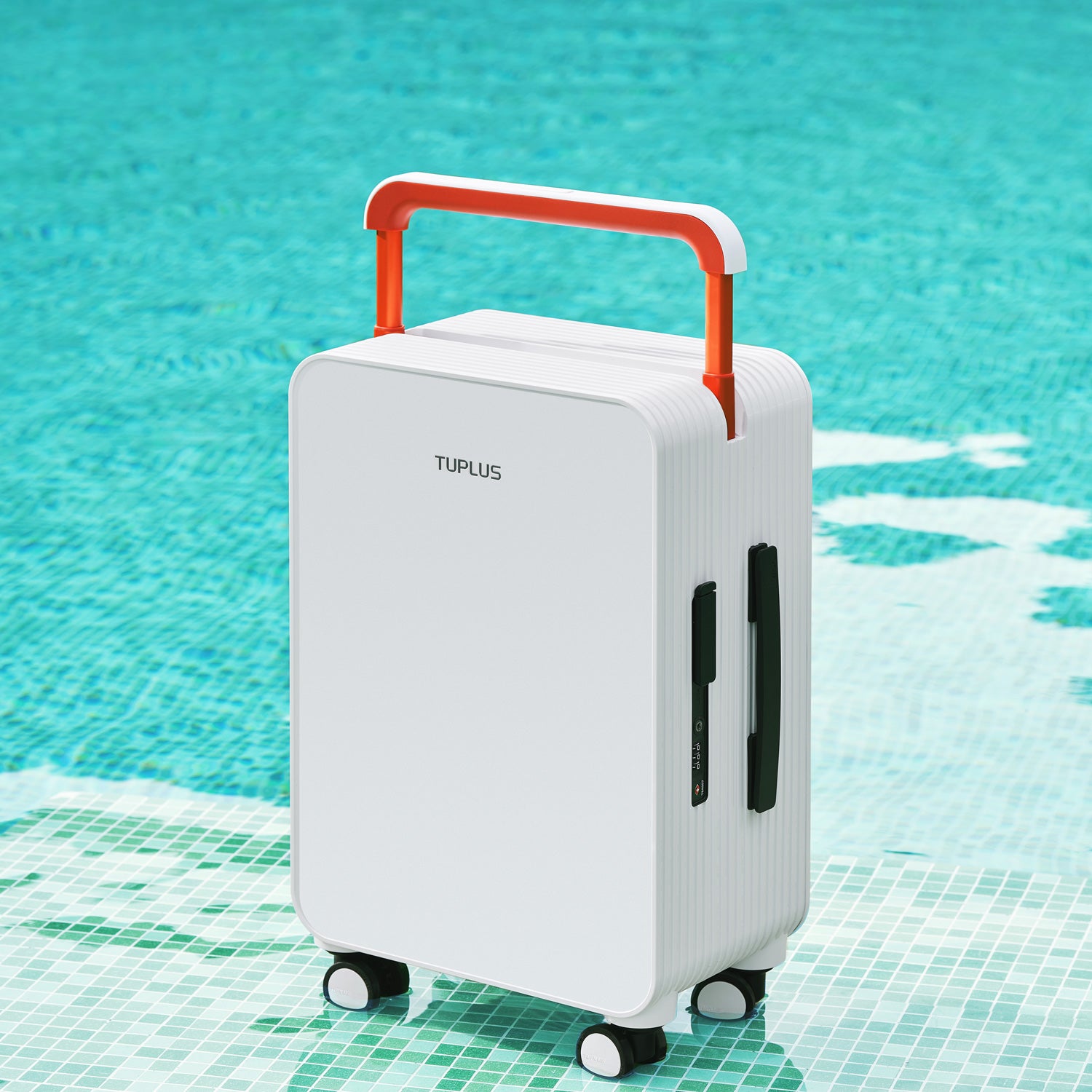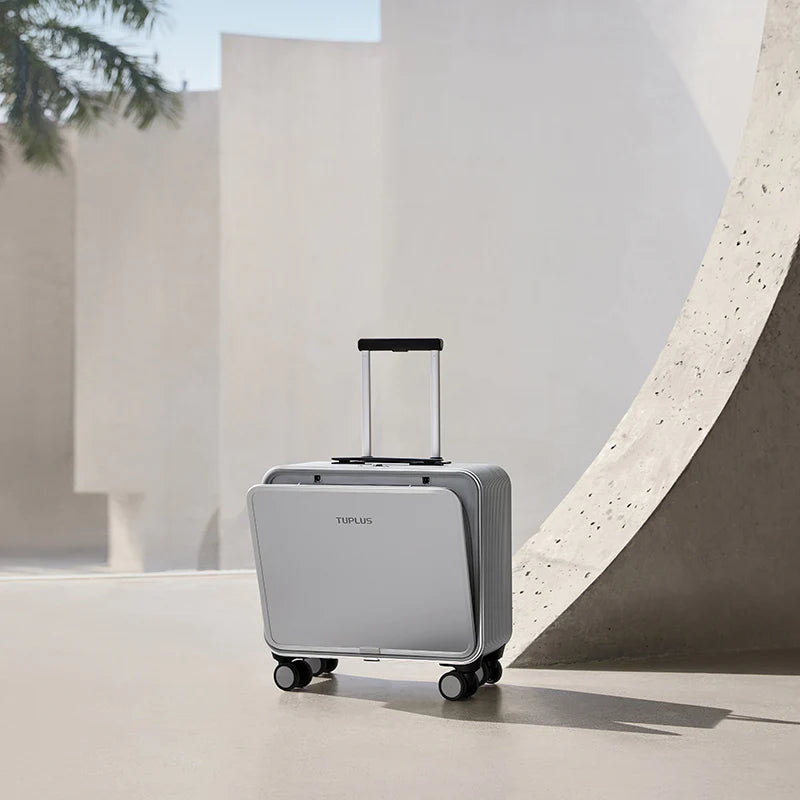文章: Want to be more resilient and adaptable? Pack your bags.

Want to be more resilient and adaptable? Pack your bags.
Travel holds the power to enhance our mental faculties, particularly in areas such as creativity and cognitive flexibility. By engaging with new cultures and experiences, we form new neural connections in our brains, which can improve our ability to think creatively and adapt to new situations. Moreover, travel often pushes people out of their comfort zones, which can lead to self-discovery.
Travel unlocks transformative opportunities, offering new experiences that broaden perspectives and enrich lives. Engaging in travel - whether a DIY trip or a luxury experience - meeting new people in new locales sparks a journey of self-discovery and personal growth. We'll dive into how travel fosters expanding cultural awareness, enhancing emotional intelligence, and igniting creativity and innovation. Each destination visited and every new friend made along the way contribute to once-in-a-lifetime experiences that reshape our understanding of the world and ourselves.
Expanding Cultural Awareness
Traveling serves as a dynamic classroom, exposing individuals to diverse cultures and histories which significantly broadens their perspectives and enhances their problem-solving abilities. Immersive experiences in various cultures not only elevate creative output but also foster a deeper understanding of different ways of life, making travelers more open-minded and adaptable.
Understanding Through Interaction
- Engage with local communities to gain insights into their daily lives and cultural practices.
- Learn basic phrases in the local language to communicate respect and foster deeper connections.
- Participate in local traditions and try new dishes to appreciate the cultural nuances fully.
The Role of Empathy in Cultural Awareness
Travel has been identified as a powerful tool to teach and enhance empathy, with studies suggesting that it allows individuals to confront and reassess their biases. Staying with a host family or participating in community activities can profoundly deepen understanding and respect for local customs and challenges.
Challenges and Considerations
Despite the benefits, the impact of travel on fostering empathy and cultural sensitivity is subject to debate. Some argue that travel alone is insufficient to develop a comprehensive understanding of complex cultural dynamics and race relations. Additionally, the travel industry's lack of diversity calls for a more inclusive approach to truly reflect the wide array of travelers it serves.
By embracing what researcher Freya Higgins-Desbiolles terms "unsettled empathy," travelers can engage in meaningful dialogues that not only enrich their travel experience but also contribute positively to their hosts' cultural landscape. This approach encourages travelers to go beyond mere observation, urging them to participate actively and respectfully in different cultural settings.
Enhancing Emotional Intelligence
Traveling not only broadens our horizons but significantly enhances our emotional intelligence (EI), a pivotal factor in personal and professional success. EI involves self-awareness, self-regulation, motivation, empathy, and social skills, all of which are nurtured through the diverse challenges and experiences encountered during travel.
Key Components of Emotional Intelligence in Travel
- Self-Awareness and Reflection: Travel pushes individuals to confront new situations, prompting self-reflection. This helps travelers understand their reactions to various challenges, fostering growth and self-discovery.
- Empathy and Social Skills: By engaging with different cultures and people, travelers enhance their empathy. They learn to listen actively and communicate effectively, building deeper connections with both locals and fellow travelers.
- Stress Management and Adaptability: Travel often involves unexpected situations that test one’s ability to manage stress and adapt. These experiences improve one’s ability to remain calm and positive in changing circumstances.
The Impact of Travel on Emotional Well-being
Travel not only improves mood and mental flexibility but also provides a unique context for practicing mindfulness and embracing diversity. These activities are crucial for developing emotional intelligence. Anticipation of travel itself can lead to an increase in happiness and a sense of well-being, due to the dopamine release associated with the reward and motivation centers in the brain.
Enhancing Leadership through Travel
Leadership is profoundly impacted by emotional intelligence. Travel experiences can significantly enhance leadership skills by increasing empathy, stress management, and the ability to motivate and connect with others. This not only aids in personal leadership development but also enhances professional environments by fostering high-performing teams.
Practical Strategies for Developing EI Through Travel
- Practice Mindfulness: Stay present and engaged during your travels to enhance self-awareness and reduce stress.
- Embrace Diversity: Actively seek out and respect cultural differences to boost empathy and social skills.
- Reflect on Experiences: Take time to consider how travel experiences have shaped your perceptions and emotional responses.
Travel offers a rich tapestry of experiences that shape and refine our emotional intelligence, making us more rounded and capable individuals. By embracing the challenges and opportunities that travel presents, we can transform not only our understanding of the world but also our ability to interact with it more effectively.
Sparking Creativity and Innovation
Traveling in unfamiliar environments not only offers new experiences but also significantly enhances creativity and problem-solving skills. Exposure to different cultures and settings stimulates the brain, fostering a mindset that thrives on innovation and creativity.
Cognitive Benefits of Travel
- Enhanced Cognitive Flexibility: Traveling helps in connecting concepts at deeper levels, boosting cognitive flexibility which is crucial for creative thinking and problem-solving.
- Neural Pathway Development: Regular exposure to new experiences during travel helps in building new neural pathways, strengthening cognitive abilities and supporting inventive thinking.
- Increased Openness: Being open to new experiences enhances curiosity, imagination, and perception, all of which are vital for creative processes.
Psychological and Emotional Growth
- Confidence Building: Overcoming challenges and engaging in problem-solving during travels builds confidence, an essential element for creative endeavors.
- Stress Reduction and Enhanced Happiness: Travel reduces stress and increases happiness, creating an optimal mental state that enhances creativity.
- Empathy and Humility: These qualities are nurtured through diverse travel experiences, contributing significantly to personal and creative growth.
Impact on Professional and Personal Development
- Creativity in the Workplace: A study involving 46 Dutch workers showed that international travel enhanced their creative thinking abilities, highlighting the professional benefits of travel.
- Personal Decision Making: Traveling alone enhances creativity through increased personal decision-making and sensory sharpness.
Broader Perspectives for Enhanced Creativity
- Routine Disruption: Breaking away from routine and engaging with new cultures and environments forces the brain to adapt, sparking fresh ideas and perspectives.
- Language Learning and Cognitive Workouts: Learning new languages during travels gives the brain a rigorous workout, improving cognitive functions and fostering creativity.
Travel not only broadens one’s horizons but also plays a crucial role in enhancing creativity through a variety of psychological, emotional, and cognitive pathways. Engaging with new cultures, overcoming challenges, and stepping out of comfort zones all contribute to a more creative and innovative mindset.
Developing Resilience and Adaptability
Traveling not only offers a chance to explore new horizons but also serves as a profound educator in resilience and adaptability. Encountering diverse cultures and navigating unforeseen challenges during trips cultivates a robust set of skills that extend far beyond the journey itself.
Mastering Challenges with Confidence
- Navigating Unfamiliar Territories: Travel often involves finding one's way in new environments, which enhances problem-solving skills and boosts confidence.
- Overcoming Language Barriers: Dealing with language differences requires creativity and patience, fostering resilience in communication.
- Handling Unexpected Situations: Whether it's a missed connection or a cultural misunderstanding, travelers learn to adapt and find solutions, which builds inner strength and resilience.
Long-Term Benefits of Travel-Induced Resilience
- Enhanced Problem-Solving Abilities: Lower stress levels from travel contribute to better decision-making and problem-solving in everyday life.
- Improved Well-being: Regular travel reduces stress and enhances overall mental and emotional health, making individuals more resilient in facing daily challenges.
- Professional and Personal Growth: Skills gained from travel, such as planning and navigation, translate into improved performance in both personal and professional realms.
Cultivating Adaptability Through Cultural Immersion
- Exposure to Diverse Cultures: Immersing oneself in different cultures increases attentiveness and adaptability, essential for thriving in global settings.
- Flexibility in Difficult Times: Travel teaches how to remain flexible and positive, even in challenging circumstances, a crucial skill in both personal and professional life.
Building a Resilient Mindset
- Confidence from Overcoming Challenges: Each obstacle overcome during travel reinforces self-belief and the ability to tackle future challenges with confidence.
- Developing Coping Skills: Embracing the unexpected helps in honing skills to cope with and adapt to new situations effectively.
Travel not only enriches one's life with unforgettable experiences but also molds a more resilient and adaptable personality, ready to face the world's dynamic challenges.
Travel, in its essence, is a profound teacher, imparting wisdom through experience and exposure that reshapes our understanding of the world and ourselves. Through the lens of expanding cultural awareness, enhancing emotional intelligence, fostering creativity and innovation, and developing resilience and adaptability, travel serves as a catalyst for personal transformation. These journeys not only broaden horizons but crucially influence our inner landscapes, encouraging growth, openness, and a deeper connection with the global community. The narrative of travel eloquently demonstrates how stepping out of our comfort zones into the unknown can significantly enrich our lives, fostering a sense of empathy, connectivity, and enhanced perspective.
The benefits of travel extend beyond the immediate joy of exploration, seeping into our professional and personal growth, shaping leadership qualities, and imbuing our lives with a richness of experience that is unparalleled. As we navigate through diverse cultures and challenges, we not only develop a more profound empathy and cognitive flexibility but also cultivate a resilience and adaptability that stand us in good stead across all facets of our lives. Thus, travel is not merely an escape from the routine but a gateway to discovering new dimensions of our capability and humanity. It underscores the importance of being open to new experiences, the value of reflection, and the endless possibilities of human creativity and innovation.








